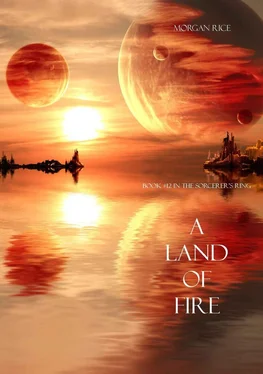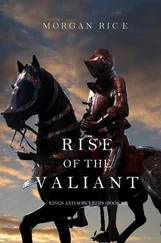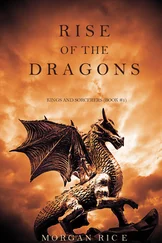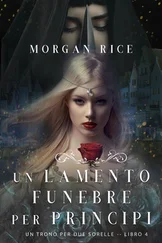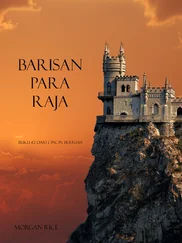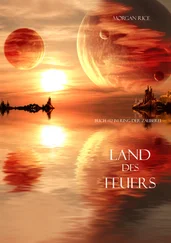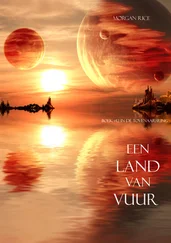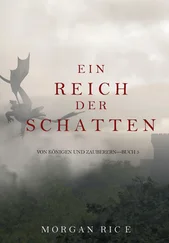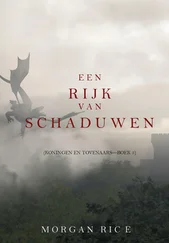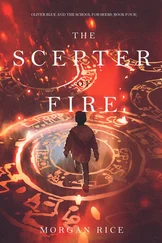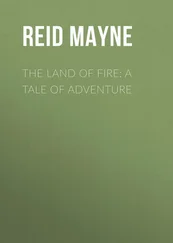Gwendolyn nodded back, satisfied.
“It is done!” Gwen called out. “To the Empire we sail!”
There came more agitated mumbling on deck, but also many shouts of excitement and approval, as her people immediately began to set sails for a new course.
An angry citizen came up to Gwendolyn.
“You better hope your plan works,” he scowled. “We have three ships, remember, and those of us who don’t agree can take one and leave you anytime we wish.”
Gwen reddened, indignant.
“You speak treason,” Thor growled, stepping forward, close to the man, hand on his sword.
Gwen reached out and laid a reassuring hand on his, and Thor softened.
“And where will you go?” Gwen asked the man calmly.
The citizen glared.
“Anywhere that is a place of common sense,” he snapped, and turned and stormed off.
Gwen turned and exchanged a look with Thor. She was so happy he was still here, taking solace in his presence.
Thor shook his head.
“That was a bold decision,” he said. “I admire it greatly. And your father would have, too.”
Thor prepared to embark, his Legion members standing near the small boat waiting to be lowered, and Gwen reached out and laid a hand on his wrist.
He turned to her.
“Before you go,” she said, I want you to meet someone.
Gwen nodded, and Illepra stepped forward and handed her the baby she had rescued on the Upper Isles.
Gwen held the child up to Thor, who looked back, eyes wide in surprise.
“You saved her life,” Gwen said softly. “You appeared just in time. Your fate is linked with hers; as is mine. Her parents are dead; we are all she has. She is Guwayne’s age. Their fates are linked, too. I can feel it.”
Thor’s eyes welled up as he examined her.
“She is beautiful,” he said.
“I cannot let her go,” Gwen said.
“Nor should you,” Thor replied.
Gwen nodded, satisfied that Thor felt as she.
“I know you must go,” Gwen said. “But before you do, you must get a blessing. From Argon.”
Thor looked back at her in surprise.
“Argon?” he said. “Has he awoken?”
Gwendolyn shook her head.
“He has not spoken since the Upper Isles. He’s not dead, but he’s not alive either. Maybe for you, he would come back.”
They walked across the ship, to the very end, until they came to Argon. He lay there, surrounded by her guards, on a stack of furs, hands across his chest, eyes closed.
Gwen and Thor knelt by his side, and it broke Gwen’s heart to see him in this state—especially since his sacrifice for all of them had led him here.
They each rested a hand on Argon’s shoulder as they knelt there, watching him patiently.
“Argon?” Gwen asked softly.
They waited, feeling the rocking of the waves. Gwen knew they could not wait much longer; Guwayne was out there, after all.
Finally, after what seemed like an eternity, Thor turned to her.
“I cannot wait,” he said.
Gwen nodded, understanding.
As Thor began to rise, suddenly Gwen reached out and grabbed his wrist and pointed: Argon had opened his eyes.
Thor knelt back down, and Argon stared right at him. He nodded his head, and it seemed to be in approval.
“Argon,” Thor said, “give me a blessing.”
“You have it,” he whispered, laying a hand on Thor’s wrist. “But you don’t need it. You will create your own blessings.”
“Argon, tell me,” Gwen said, “is our son alive? Will we find him? Will you bless us to find him?”
Argon closed his eyes and shook his head, withdrawing his hand.
“I cannot alter what is predestined,” he said.
Gwen felt a pit in her stomach at his words, and she and Thor exchanged a concerned look.
“Will we reach the Empire?” Gwen asked. “Will we live?”
Argon was silent for a long time, so long, Gwen wondered if he would ever reply. Just as they were preparing to leave, he reached out and grabbed her wrist. He stared at her with such intensity, his eyes shining, that she nearly had to look away.
“On the far side of the world, in the Empire, I see another great warrior, a young man rising up. If he lives, and if you reach him, together, you may achieve what no one else can.”
“Who is this young man?” Gwen pressed.
But Argon closed his eyes, and after a long while, she realized he had gone back to his state. She was left pondering, wondering. Did that mean they would make it? Did her people’s fate really depend on a single boy? And most of all: who was he?
Darius grunted as he swung the blunt ax high and brought it down in a high arc, over his shoulder, onto a large, green boulder. It smashed before him into a pile of small rocks, green dust rising up in a cloud, covering him, as it had since the sunrise. The pungent smell of athox burned his nose, and he tried to turn his head.
Darius knew it would do him little good: he was mired in the dust from head to toe, after another long day of labor, as he had been nearly every day of his life. At fifteen years of age, his hands were raw, his clothing tattered, having spent nearly all his life in labor, in hard, backbreaking work. It was the life of a slave and, like all of his people, he hardly knew anything different.
But Darius dreamed of a different life, even if it was a life he never knew. He looked like his people, with his brown skin, his yellow eyes, and his muscular frame; but there was something about him that set him apart. With his proud, noble jaw, glistening eyes, and broad forehead, he did not carry himself like a slave, as many of his people did; instead, he had the heart and soul of a warrior. He exuded courage and honor, pride, and a refusal to be broken. And while all of his people had short hair, Darius’s was long and curly, brown, wild, untamed, pulled back in a long ponytail and dangling behind his back. It was his mark of individuality in a subjugated world, and he refused to cut it. More than once his friends had taunted him for it—yet after too many times of Darius challenging them and proving himself a better fighter, the taunts finally stopped and they learned to live with his uniqueness.
With not an ounce of fat on his rippling body, Darius, even though he was not as muscular as some of the others, was stronger and quicker than nearly all of them. He was, he felt—he had always felt—different from his people, destined to be a great warrior. Destined to be free.
Yet as Darius looked around, he saw how different reality was from the destiny he imagined for himself. Day in and day out, he was a slave, like all of his people, a subject for the Empire to do with as they wished. Darius knew his people were not alone: the Empire had enslaved all peoples, of all color skin and eyes, in all the lands of the world. They had enslaved anyone who was not of their race, anyone who did not have the glowing yellow skin of the elite Empire race, who did not have the two small horns behind their ears, the long pointed ears, the extra height and breadth, the too-muscular bodies, and the glistening red eyes. Not to mention the fangs. The Empire believed themselves to be a master race, a superior race.
But Darius did not believe it for a second. The Empire did have superior numbers, and superior arms and organization, and they had used their brutality, their strength in numbers—and most of all, their dark sorcery—to enforce it, to subjugate others to their will. Mercy did not exist in the Empire culture; they seemed to thrive on brutality, and for every slave, there seemed to be ten Empire taskmasters. They were a race of soldiers. They were better armed, better organized, and their hundred-million-man army seemed to be everywhere at once.
It would all make sense if the Empire were barbarians—but Darius had heard of their cities, shining with gold, and had heard the Empire race was incredibly sophisticated and civilized. It was a paradox he could not reconcile in his mind, try as he did.
Читать дальше
Конец ознакомительного отрывка
Купить книгу
